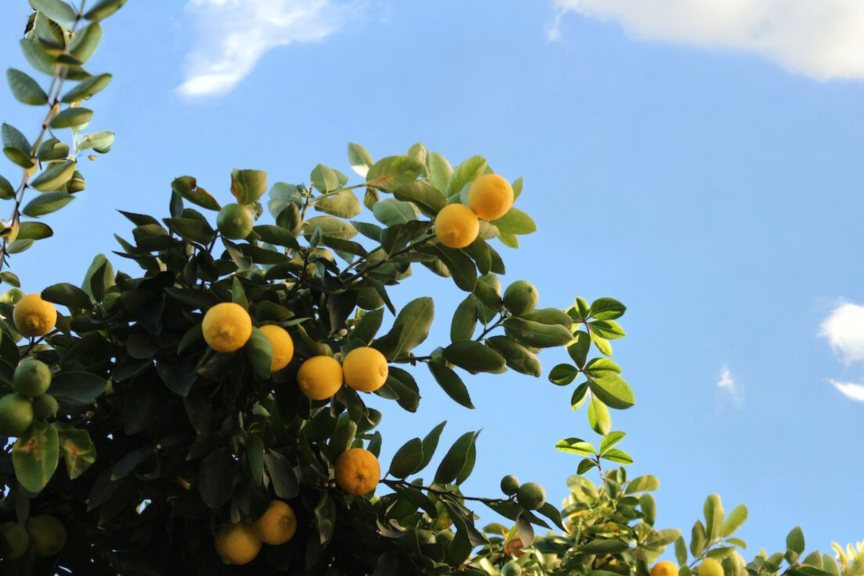A lemon tree can be a special addition to your home or garden. Whether you are considering planting a lemon tree or you already have, you may be curious how long it will be around to produce juicy, tart lemons for you and your household.
How long a lemon tree will live can vary depending on a few factors including exposure to disease or stress, variety, and other considerations that we will go into more detail below.
That said, one can expect the average lemon tree to live between 30 to 50 years or more. However, with proper care and optimal conditions, lemon trees have been known to live upward of a century. In fact, there is a greenhouse-sheltered, Ponderosa lemon tree at Logee’s nursery in Connecticut that is over 120 years old!
5 Factors That Impact Lemon Tree Lifespan:
1. Potted vs. In-Ground:
The life expectancy of a lemon tree will be affected by whether it is kept in a container or planted in the ground. One can generally expect a lemon tree kept in a container, such as a pot or planter, will have a shorter lifespan than a tree planted in ground and outdoors in optimal climate conditions.
2. Disease and Improper Care:
Stress caused by diseases or improper care can lead to a lemon tree dying earlier than expected.
Stress on a tree can be caused by inadequate water supply due to drought or scant watering, lack of proper fertilization, diseases such as root rot or blight, or pests such as spider mites and scale insects. All of these things can impact and shorten the lifespan of a lemon tree.
3. Variety of Lemon Tree:
Life expectancy may also vary based on the type of lemon tree.
An article published in California Agriculture in 1952 found a short-thorned strain of Lisbon lemon to be longer-lived in commercial and experimental orchards than Eureka or Villafranca lemons (cit).
Additionally, certain strains of lemon trees can be more susceptible to local diseases, which can also impact lifespan.
4. Dwarf vs. Standard
Dwarf lemon trees can be expected to have a slightly shortened lifespan compared to their standard height counterparts.
This is because the root systems of dwarf trees are smaller and less robust, meaning they may not withstand stressors such as drought or disease as well as a lemon tree with a standard root system.
5. Grafted vs. Not
Most nursery bought lemon trees have been grafted.
Grafting is a common propagation technique that means the fruit bearing upper part of your lemon tree variety has been joined to the root system, or rootstock, of another citrus tree.
A grafted lemon tree is generally a good thing as part of the objective to grafting is that your tree is joined with the rootstock of a tree with greater disease resistance, meaning it is hardier than if the lemon tree were to have been grown from seed.
Because of this, the rootstock your tree is grafted onto can make a difference in its life and health span expectancy.
Tips to Promote Lemon Tree Longevity:
For in-ground lemon trees:
-
- Plan ahead and plant your lemon tree in an area it can thrive. Your lemon tree will need between 6 to 8 hours of direct sunlight per day.
- If your climate does not provide 60 inches of water per year, consider supplementing your lemon tree’s water with an irrigation system or manual watering, especially during dry periods.
- Regular fertilization will help ensure your tree remains healthy and fruitful throughout its lifespan.
For container-planted lemon trees:
-
- If you are planting a lemon tree in a container, be sure to water your lemon tree regularly when the soil is dry (see this article for more info).
- Keep your tree in a sunny location, preferably a south-facing window for maximum sunlight exposure.
- You may also want to consider hand pollinating the lemon tree’s flowers for optimal fruit production (see this article for more info).
- Regular fertilization will help ensure your tree remains healthy and fruitful throughout its lifespan (see this article for more info).

